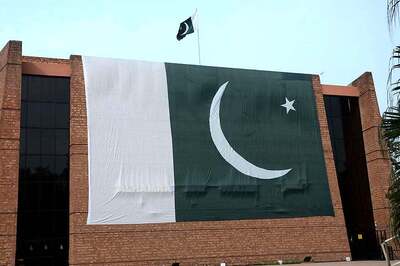
views
Usually, cities gain fame for their monuments, scenery, cuisine, or other distinctive features, but one city in Nigeria stands out for an entirely different reason. Reports indicate that this Nigerian city has an unusually high birth rate of twins, earning it the nickname the ‘City of Twins.
Twins are often considered a marvel of nature, and encountering two identical-looking individuals can be a surreal experience. Igbo Ora, a city in Nigeria, has gained renown for having a remarkably high population of twins, exceeding the norm. According to local chief Jimoh Titiloye, every family in the city is said to have a pair of twins or even multiple births.
The Reuters report highlights that twins are notably common among the Yoruba ethnic group, which is predominant in Nigeria. A study conducted by a British gynaecologist in 1970 revealed that in the southwest region of Nigeria, there were 50 sets of twins in every 1000 births, making it one of the highest twin birth rates ever recorded.
In Yoruba culture, where twins are born so frequently, specific names are assigned to them based on traditional practices. Depending on the birth order, they are called Taiwo or Kehinde.
The residents of Igbo Ora celebrate their twins through an annual festival that has been held for the past 12 years. In the previous year, the festival attracted 1000 pairs of twins, drawing participants from as far as France, according to organisers.
Despite the city’s fame for its high twin birth rate, there is no scientific evidence or explanation for this phenomenon. Local beliefs attribute it to a traditional dish called Amala, prepared from yam flour. Gynecologist John Ofem from Abuja suggests that the food consumed in Igbo Ora, particularly Amala, might contain high levels of certain hormones that lead to what is known as multiple ovulation.
In the absence of a scientific consensus, the City of Twins continues to be a unique and intriguing phenomenon, drawing attention not only for its annual festivities but also for the mystery surrounding the extraordinary rate of twin births in Igbo Ora.



















Comments
0 comment